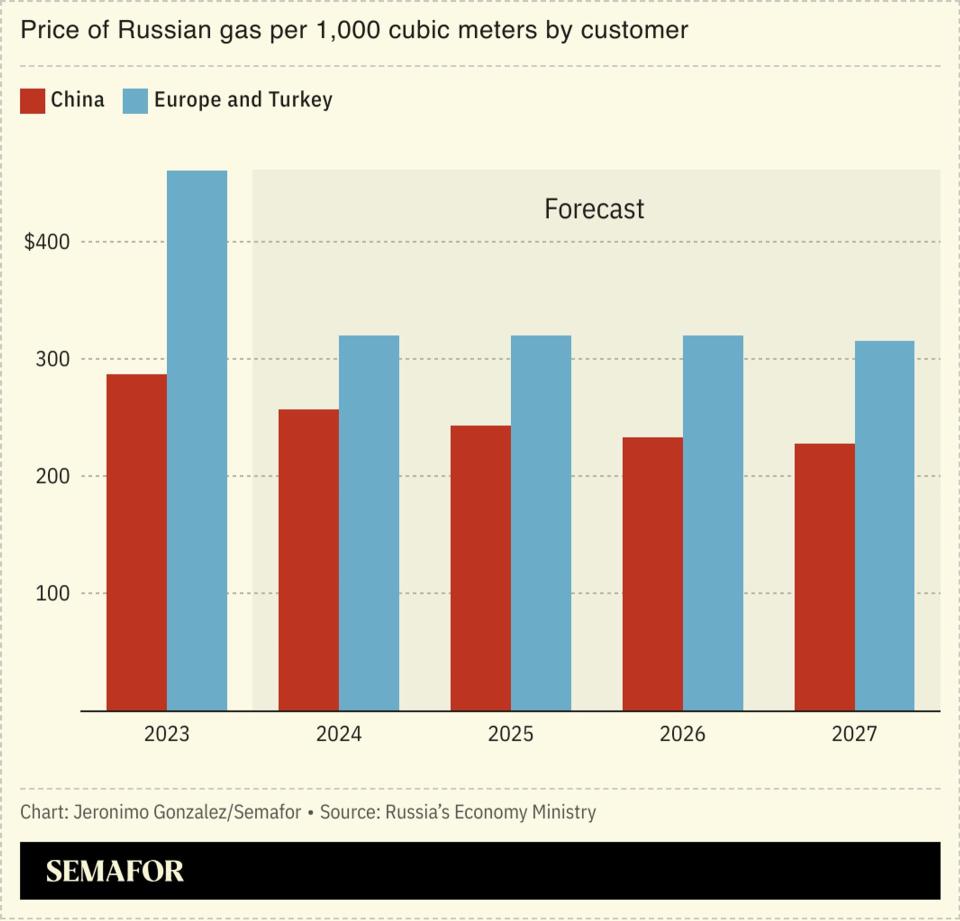EU announces new sanctions on Russia, targeting gas for the first time
Insights from Politico, Reuters, Bloomberg, and Le Monde
The News
The European Union announced new sanctions on Russia on Thursday, targeting the country’s liquefied natural gas sector for the first time since it introduced penalties in response to Moscow’s full-scale invasion of Ukraine.
The rules include blocking onward shipments of Russian LNG from EU ports, as well as banning investment in Russian gas projects.
They aim to target Russia’s so-called shadow fleet — estimated to encompass around 1,500 ships — which has helped Moscow circumvent a Western-imposed price cap on Russian oil.

SIGNALS
Only a quarter of Russia’s EU gas profits may be hit
The new rules could cut Russia’s energy income by hundreds of millions of dollars, Politico reported, by forcing it to use longer, costlier routes to get its oil and gas to market. But the outlet noted the sanctions won’t affect the bulk of the country’s gas exports to the EU because the rules only ban transfers of the fuel in European ports. And while only 5% of European gas consumption in 2023 came from Russia, Moscow still made about $8.6 billion from exports to the bloc. The new restrictions will likely only affect around a quarter of that sum, the outlet added.
Ban on trans-shipments could affect buyers in Asia
The sanctions on Russian gas don’t target imports to Europe directly, but will make it harder for cargo ships transporting gas to reach key Asian buyers, risking angering countries like India and China, Bloomberg noted. Russian companies such as Novatek currently transport gas from the Arctic in ice-class ships and move it onto conventional ships in European ports. The sanctions will put an end to the practice, presenting logistical challenges to Russian firms. This could lead to a decline in exports to Asia because of increased freight costs, the outlet added. However, experts told Reuters that the sanctions will have minimal impact on the broader Russian gas industry, as trans-shipments only make up about 10% of the country’s total exports.
Russia has been resourceful at finding ways to circumvent sanctions
Sanctions have not stopped Russia from finding ways to get banned products into Europe, often via third countries, Le Monde noted. Moscow could find workarounds with gas too, by handling ship-to-ship transfers in the northern Russian city of Murmansk, or use the Northern Sea as a potential transport route — though this would depend on weather conditions, Bloomberg noted. Russia could also unload the supply originally meant for Asian markets in Europe, and buy the gas to resell to Asia elsewhere — which would expose the bloc to criticism that they’re ramping up their Russian gas imports while claiming to minimize them, one analyst told the outlet.

